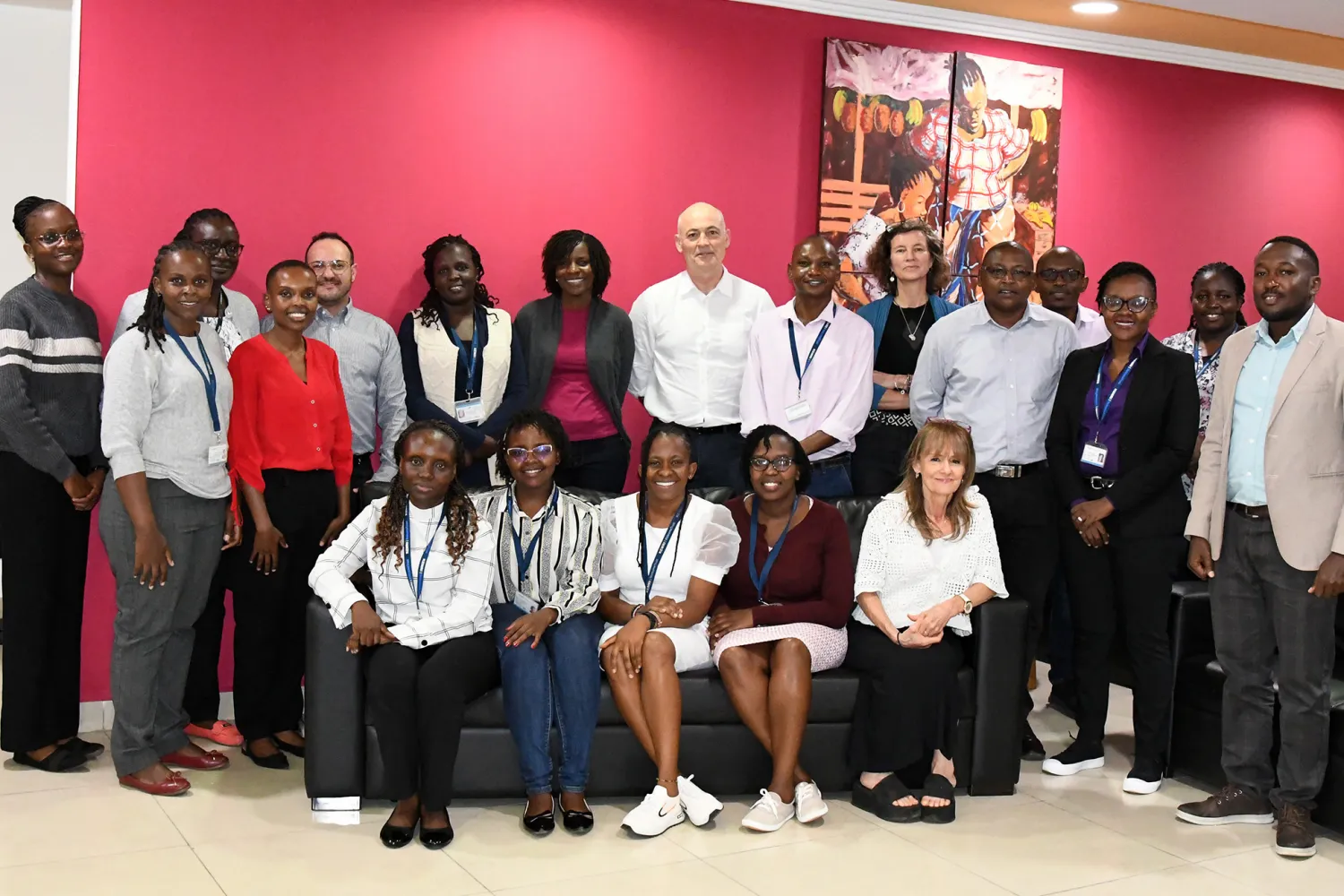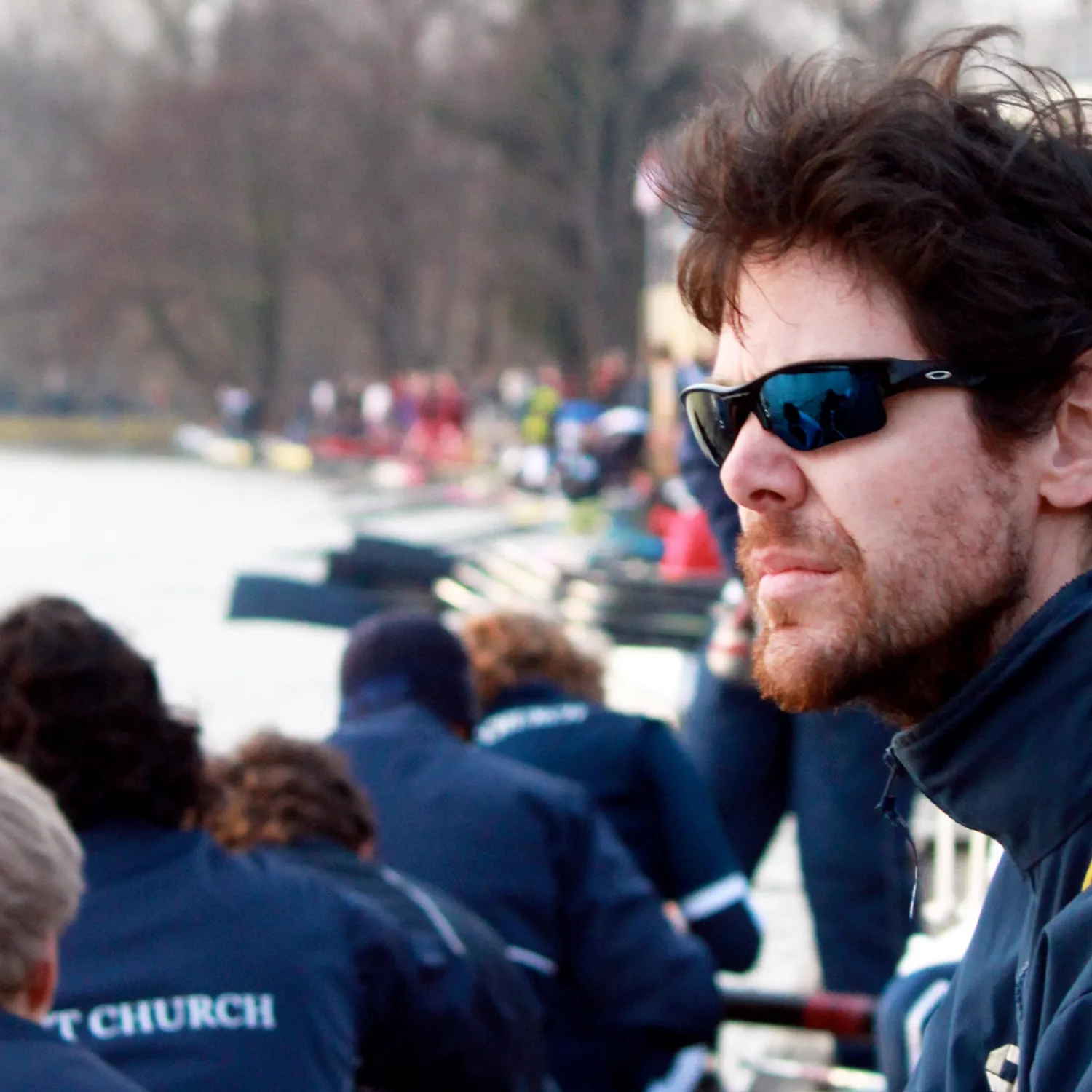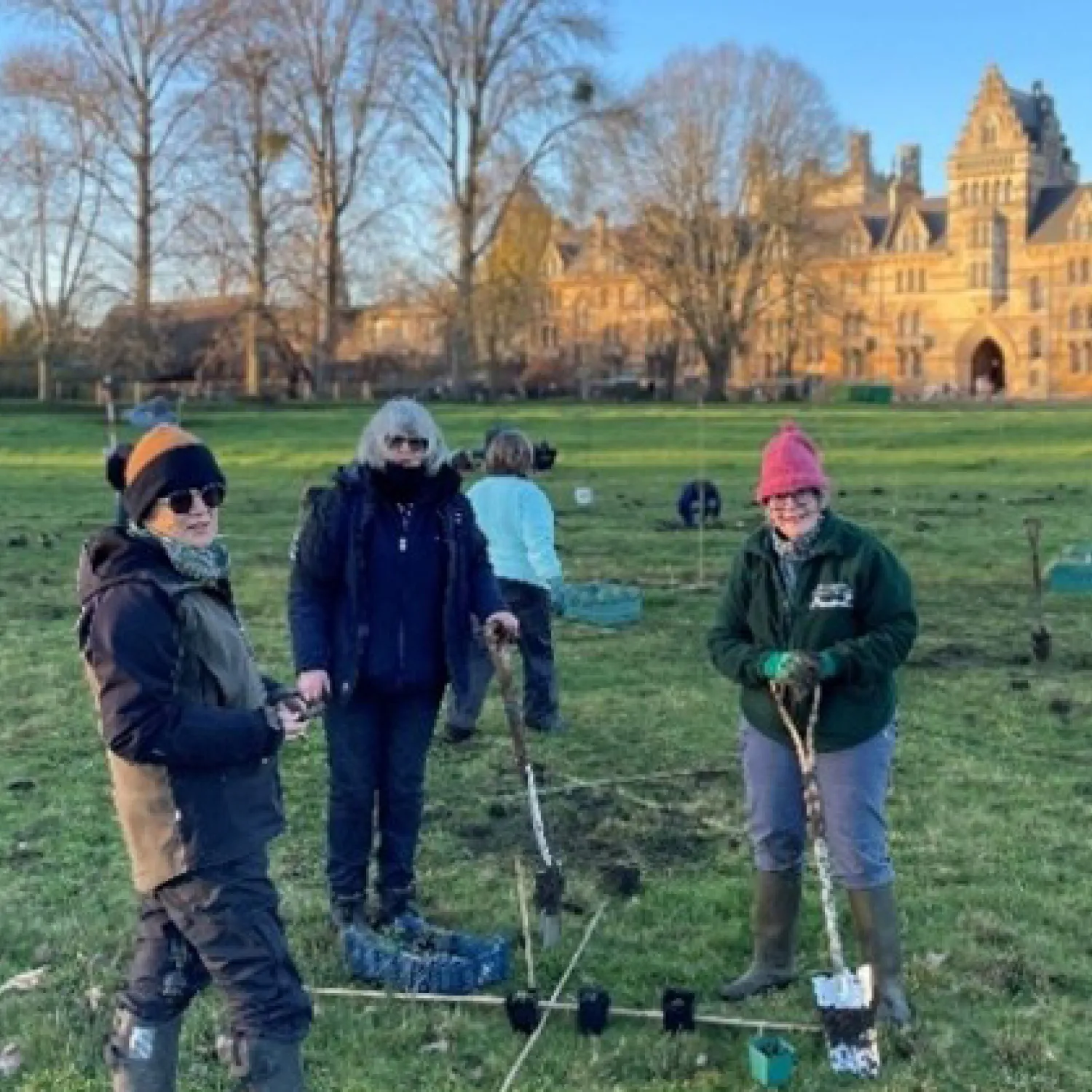Breadcrumb
Professor English concludes landmark project on Kenyan newborn care
After nearly five years of intensive collaboration, a major international research project investigating how to improve the quality of care for sick newborns in Kenyan hospitals has reached its conclusion.
The Learning to Harness Innovation in Global Health for Quality Care (HIGH-Q) project was co-led by Professor Mike English, Senior Associate Research Fellow at Christ Church and Professor of International Child Health at the University of Oxford, together with Professor Fred Were of the University of Nairobi. Bringing together expertise from Oxford, Nairobi and beyond, HIGH-Q set out to explore how innovation might help address some of the most urgent challenges in neonatal care.
The project began in October 2020, in the midst of the COVID-19 pandemic, and continued until September 2025. It was shaped by extensive stakeholder engagement and involved a multidisciplinary team of researchers, including Assistant Professor David Gathara, Dr Sebastian Fuller, Dr Michuki Maina, Dr Dorothy Okello, and Professor Sassy Molyneux.
HIGH-Q also trained five University of Oxford doctoral students from low- and middle-income countries (LMICs) – Abdul Imam, Gloria Ngaiza, Gulraj Grewal, Naima Nasir and Asma Rababeh – four of whom have now completed their DPhils.
Under strain: neonatal care in Kenya
Kenya's neonatal care system, like many across sub-Saharan Africa, faces immense pressures. Research led by HIGH-Q revealed that despite hospitals being equipped with advanced technologies such as incubators and CPAP machines, the shortage of trained neonatal nurses remains a critical barrier to saving lives.
In many hospitals, nurses care for more than 25 infants during a 12-hour shift – leaving them able to provide only around one-third of the care required. The consequences are stark: Kenya continues to face persistently high neonatal mortality, with approximately 22 deaths per 1,000 live births. ‘Without more nurses and better-designed wards, improving newborn care will remain impossible,’ said Professor English.
The research also highlighted the emotional toll on both mothers and healthcare workers. Mothers reported feeling isolated and unsupported, while nurses struggled with exhaustion, burnout, and moral distress. Overcrowded wards, poor infrastructure, and lack of privacy compounded these challenges, undermining the dignity and safety of both families and staff.
Exploring solutions
As part of its work, HIGH-Q tested several pilot interventions aimed at supporting staff and improving care:
- Hiring additional nurses, which improved teamwork though staffing still fell short of optimal levels;
- Introducing ward assistants, who took on routine tasks and helped mothers, relieving pressure on nurses;
- Training in communication and emotional support, which strengthened interactions between staff and families.
These pilots point towards practical, scalable reforms – yet the research makes clear that long-term improvement requires system-wide investment.
The HIGH-Q team’s findings are already shaping national and international discussions, receiving significant media attention in Kenya, including from the nation's leading television station Citizen TV Kenya. The researchers' recommendations include scaling up nurse staffing, redesigning neonatal wards to improve hygiene and privacy, formalising ward assistants as part of care teams, and embedding communication training to strengthen compassion and resilience in care delivery.
In the age of AI, the HIGH-Q programme reminds us that when caring for small and sick babies technology cannot substitute for skilled personnel.
In the age of AI, the HIGH-Q programme reminds us that when caring for small and sick babies technology cannot substitute for skilled personnel.
The project has already generated numerous academic publications, with more to follow in the coming months. A series of policy briefs has also been prepared to inform decision-makers in Kenya and globally.
Reflecting on the project, Professor English commented: ‘For the first time, we have a detailed understanding of challenges faced by nurses and effects of very high workloads on their ability to care for sick newborns, and broader detrimental effects on nurses themselves, their ability to use new equipment carefully, and on mothers and families.’
‘In the age of AI, the HIGH-Q programme reminds us that when caring for small and sick babies technology cannot substitute for skilled personnel. We need technology and adequate numbers of skilled people working together with families to ensure babies survive and thrive.’
Mike English is Professor of International Child Health at the Nuffield Department of Medicine and a Senior Associate Research Fellow at Christ Church. To learn more about his research, view his profile on the Christ Church site and his Nuffield Department of Medicine page.
Other Christ Church news




